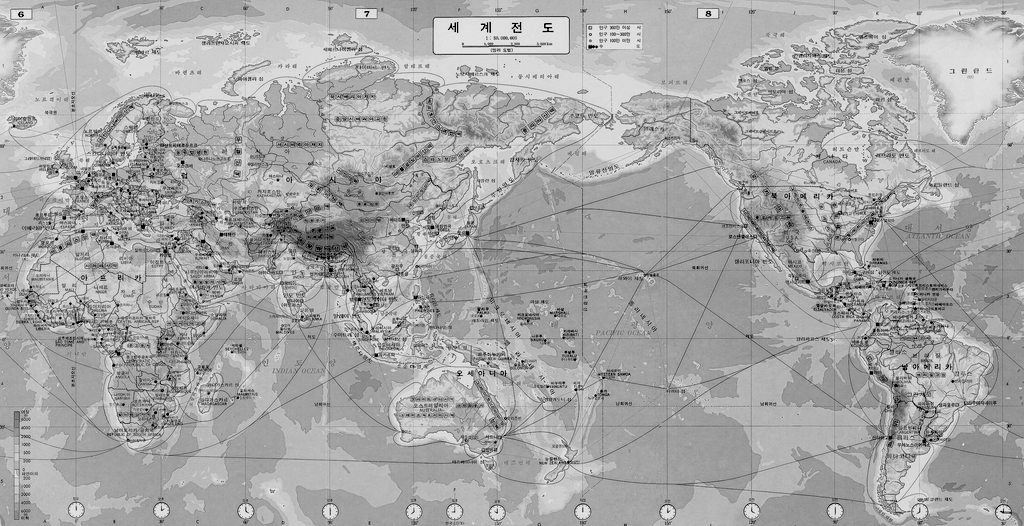
April 1st, 2025
March 2, 2020 9 min
When it seems that the West is losing prominence on the international scene, and we tend to divide, who is more likely to fill that gap?


Every year since 1963, in February, the Munich Security Conference (Münchner Sicherheitskonferenz), the most important independent forum on international security policy, hosts a significant number of heads of state, ministers, members of the armed forces, scientists, and businesspeople.
One aspect to highlight from this year’s edition is its title: Westlessness. This word reflects the growing concern for the future of the western world at a time when it seems we are losing leadership on the international scene, and we tend to divide.
The Munich meeting has also revealed the different perspectives from which the situation is interpreted on both sides of the Atlantic. While US Secretary of State Mike Pompeo triumphantly asserted that “our western values are winning,” and focused his concerns on “the Chinese threat”, European representatives expressed their doubts on whether both Americans and Europeans can continue talking about a common “us”.
Contrary to Pompeo, continental Europeans (mainly French and Germans) expressed their concern about the West’s increasing inability to shape the international order according to its values and spoke of the need to strengthen the European project, at a time when the United States has decided to look inwards and abandon the role of ‘world police’ that Americans had played since the Cold War.
What is undeniable is that both from an economic and a demographic perspective, what we used to know as the West and, particularly, Europe play a less prominent role in the world order, and everything suggests that this trend will deepen in the coming decades (although our way of life will probably continue to be the envy of millions of inhabitants of the planet during the coming years.)
From an economic point of view, China’s GDP (PPP) already exceeds that of the United States. In November last year, we learned China had overtaken the United States as the country with the most ‘unicorns’ (startups valued at more than USD 1 billion;) and the latest forecasts indicate that 2020 will be the first year that Asia’s GDP will exceed the accumulated GDP of the rest of the world.
From a demographic perspective, Asia is the most populated continent. Three out of five inhabitants of the world are Asians and, according to the United Nations, Asia will remain the most populated region until the end of the century, when they might be surpassed by Africa (a continent over which China already exerts a growing influence.)
What happens in the meantime in the West?
On the two shores of the Atlantic, we find two very different realities.
In the field of technology, China is rapidly closing the gap, but the world’s most powerful engine for technological innovation remains in the United States. On the contrary, Europe lags behind in this race. As an example, more than half of the high-potential companies on the Future 50 list, produced by Fortune and the Boston Consulting Group, are American, while only 6% are European. The so-called “digital giants” are another category of companies from which Europe is absent.
There are also differences at the demographic level. Compared to the United States, Europe’s population is older, it is aging faster, and it is growing more slowly. Consequently, in the coming decades, Europe will account for a decreasing share of the planet’s total population (if Europe now represents approximately 10% of the world population, the United Nations predicts that it will represent 6% at the end of the century.)
Furthermore, we cannot ignore the profound differences in the levels of social cohesion we observe on both sides of the Atlantic. Inequality is a very serious problem in both geographies, but in the United States, it is much larger than in Europe, where we have social protection mechanisms that partially cushion this problem.
In this context of an increasingly divided West, we receive the news that in the last 12 months the combined market value of the five largest “Western digital giants” (Alphabet, Amazon, Apple, Microsoft, and Facebook) increased by almost two trillion dollars. And inevitably the question arises as to whether these digital mega-corporations could be better positioned than China to become the successors to what we now know as the ‘West’.
Many will say that those valuations are the reflection of a speculative ‘bubble’, but it could also be, as a recent article by The Economist argues, that those trillions of dollars respond to the real capacity of these companies to continue growing and diversifying during the next decade, and concentrate much more political and economic power than what they already accumulate today.
Time will tell.
Did you like it?
Are you already a user? Log in here